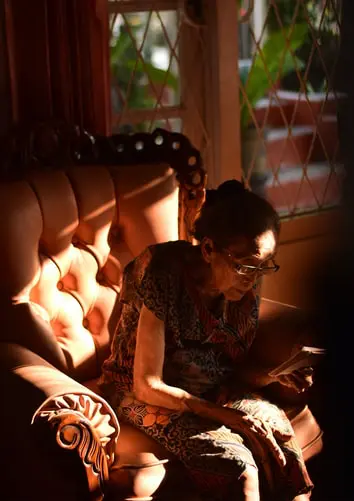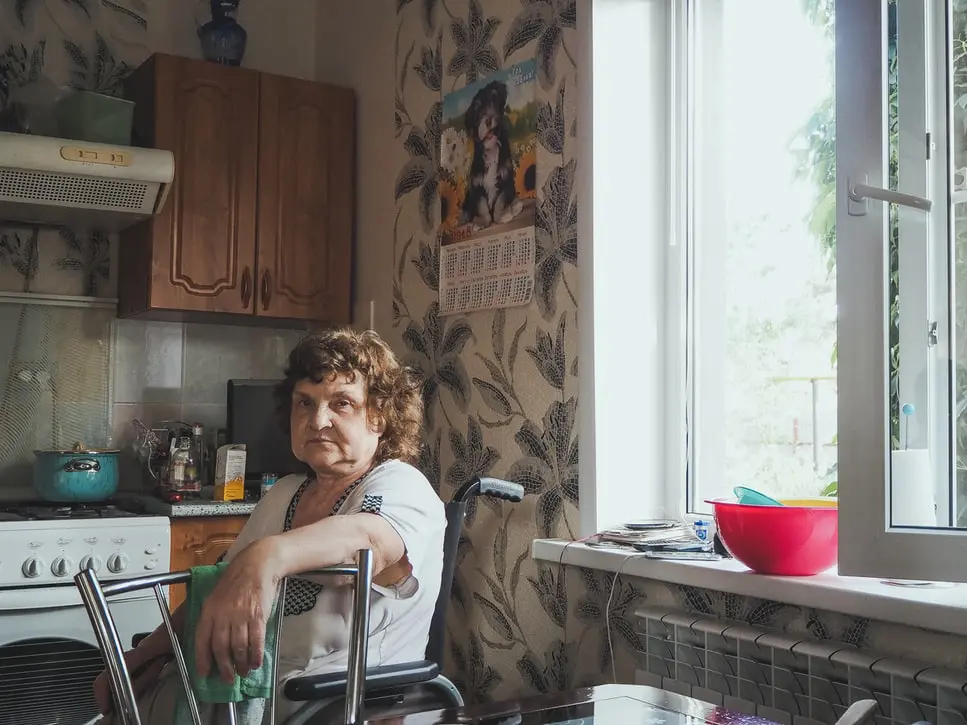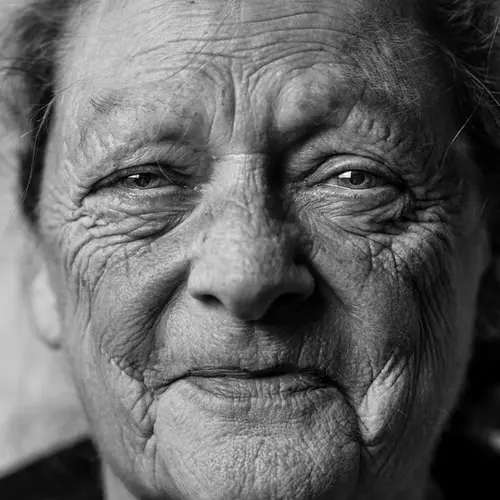Fighting loneliness with some traditional tech: the telephone
Age UK’s Telephone Friendship Service acts as a lifeline for older people experiencing loneliness, matching them with volunteers with shared interests who, after training and assessments, connect with that older person for a 30 minute call once a week. When thousands of older people go for long periods without speaking to a friend, neighbour or family member, the power of another person’s voice and time has a monumental impact on quality of life.
Over 120,000 older people during the pandemic* in England, often went for a week without speaking to anyone
Loneliness is associated with worse physical and mental health in older people
In the worst cases loneliness undermines resilience to health threats, and leads to older people in the twilight of their lives losing all hope, so they lack a reason to carry on
As we reflect on our journey with Age UK, we can confidently say that after five years of partnership, our development team still won’t let us underestimate the power of a bit of traditional tech – the landline.
*in June/July 2020
"My health has improved due to my weekly Telephone Friendship call. I feel like my life has been transformed and I’m ready to rock n roll again!”

The challenge
The Age UK team was ambitious, with a goal to connect thousands of volunteers with older people; however, matching and scheduling calls was, at that time, a manual process which meant a good service but one that was difficult to scale. We needed to automate the call handling and matching process, ensuring we protected people whilst still delivering a high quality, life-improving service. We also needed to consider that this was an existing service with actual users, so we couldn’t kick off with a prototype. We needed a platform that rose to that challenge right from day one.
Almost 4000 older people are currently matched with a volunteer friend
Our approach
Working collaboratively with Age UK, we connected across teams to rapidly create the ‘MVP’ version of the service. Without going fully agile we adopted a lot of Scrum processes, working collaboratively on a shared backlog, sprint plans and project boards. The technical approach is innovative; triggering and recording real world calls using Twilio’s API, client-side javascript frameworks and serverless architecture that allows the service – and the costs – to scale with demand. What this means is that the tech which operates the phone network and connects the calls to both the volunteer and older person keeps the end user experience incredibly simple.
Telephone numbers are never shared – keeping relationships safe – ensuring the privacy of both parties are protected. And behind the scenes, there is a full administration system which gives Age UK staff the confidence that all calls are running seamlessly.

The Telephone Friendship Service has won several awards
- British Interactive Media Awards (BIMA) for ‘Product & Service Design: Conscience’ and the best in category award for ‘Advance Award for Conscience’
- Third Sector Award for ‘Breakthrough of the Year’
- UXUK Awards for Best Innovation
Reacting to Covid
2020 and Covid changed everything. For Age UK’s telephone friendships it meant introducing flexible calling. People – especially older people – were having even less contact with family, friends, neighbours, shop assistants, anyone and Britain was facing an isolation and loneliness crisis. Pre-Covid calls took place once per week, at a set time. In response to the pandemic we allowed multiple calls per week and more flexibility as to when they were made, enabling increased human contact amongst older people and volunteers.



“Our service has always been here for older people who are lonely and isolated, but during lockdown we saw an unprecedented level of demand on our service, with more older people than ever desperately needing our help. With the support of our volunteers, we’ve been able to grow our service to support over 4200 friendships – offering older people a regular friendly chat with a dedicated telephone friend.
We know these calls are a lifeline to many of our older members, offering them the chance to build a real friendship over the phone. We’re so grateful to all our volunteers for helping Age UK be there for older people at a time when they have needed our support more than ever."
Building on tech to improve volunteer involvement
No group has been more deeply impacted by the Covid-19 crisis than older people. They will take much longer to return to ‘life as normal’ due to confusion and anxiety, or because of physical, emotional and financial difficulties exacerbated by months of isolation. But, telephone friendship is just one way to support older people. Volunteers are an essential part of the solution to the crisis we face, and many new volunteers have come forward to join the 205,000+ existing Age UK volunteers during this time of need.
Together, we bid for and won grant funding from Catalyst to create a system which will enable Age UK’s network across the country to more effectively manage volunteers, coordinating remote recruitment, training and support of volunteers, empowering them to deliver hands-on services for older people. Age UK is a national charity that wholeheartedly embraces technology and we are proud to be innovating with them. Because they work in partnership with local Age UKs, teams handle all aspects of volunteer management differently across more than 100 partners. This meant, there were a significant number of user needs, but all of them could be achieved through reusing a number of the technical concepts already in use by the Telephone Friendship Service system. Plus, building on tech that already works can more quickly and cost-effectively deliver the solution we need.
We now have a prototype and are exploring funding for exciting next steps.

An impact nobody could predict
Looking back, nobody would have known the essential, life-changing impact that this service would have on older people experiencing chronic loneliness in the years up to 2020.
Beyond 2020? Well, now more than ever, isolation has touched each one of us at scale. For the first time, we all recognise the importance of human contact, the impact of another person’s presence and the comfort of hearing someone’s voice. Many of us have felt loneliness more personally than ever before.
That loneliness led us to realise the power of digital in bringing family and friends together – Zoom calls with snazzy backgrounds, a Houseparty game night – it’s all pretty impressive technology. But, what we love about this story is that the tech is covert. It simply hangs back, existing for just a few to see, and at the same time, it facilitates the most beautiful of human connections just when they are needed the most.
With that in mind, let’s keep talking.
Explore a longterm digital partnership
We are passionate about being more than just an agency. Our Digital Partner team work closely and collaboratively with our charity partners to ensure optimum value and results.
Speak to our team today